2020 is the International Year of the Nurse and the Midwife. 5 May is the International Day of the Midwife (IDM). The theme of this year’s IDM celebration set by the International Confederation of Midwives is: “Midwives – Celebrate. Demonstrate. Mobilize. Unite”.
Midwives are central to everything we do at UNFPA, the United Nations sexual and reproductive health agency. In China and globally, we celebrate the lifesaving work of midwives and advocate for the protection of and investment in midwives, through the COVID-19 pandemic and beyond.
During the more than 70-day nationwide aid to Hubei, the province hardest hit by COVID-19, China mobilized a total of 28,600 midwives and nurses. This accounted for 70 per cent of the total number of medical staff who were deployed to Hubei. Among the 28,600 midwives and nurses, almost nine in ten of them were women. Midwives, especially women midwives, have been playing a critical role in the battle against COVID-19, safeguarding the health of women and newborns, and giving courage to vulnerable patients.
UNFPA applauds and hails the work of all midwives in the fight against the novel coronavirus. We stand by them and work with the government, national and international partners to protect them, and support the development of their profession in China.
All images courtesy China Maternal and Child Health Association via UNFPA China.
++++++++++
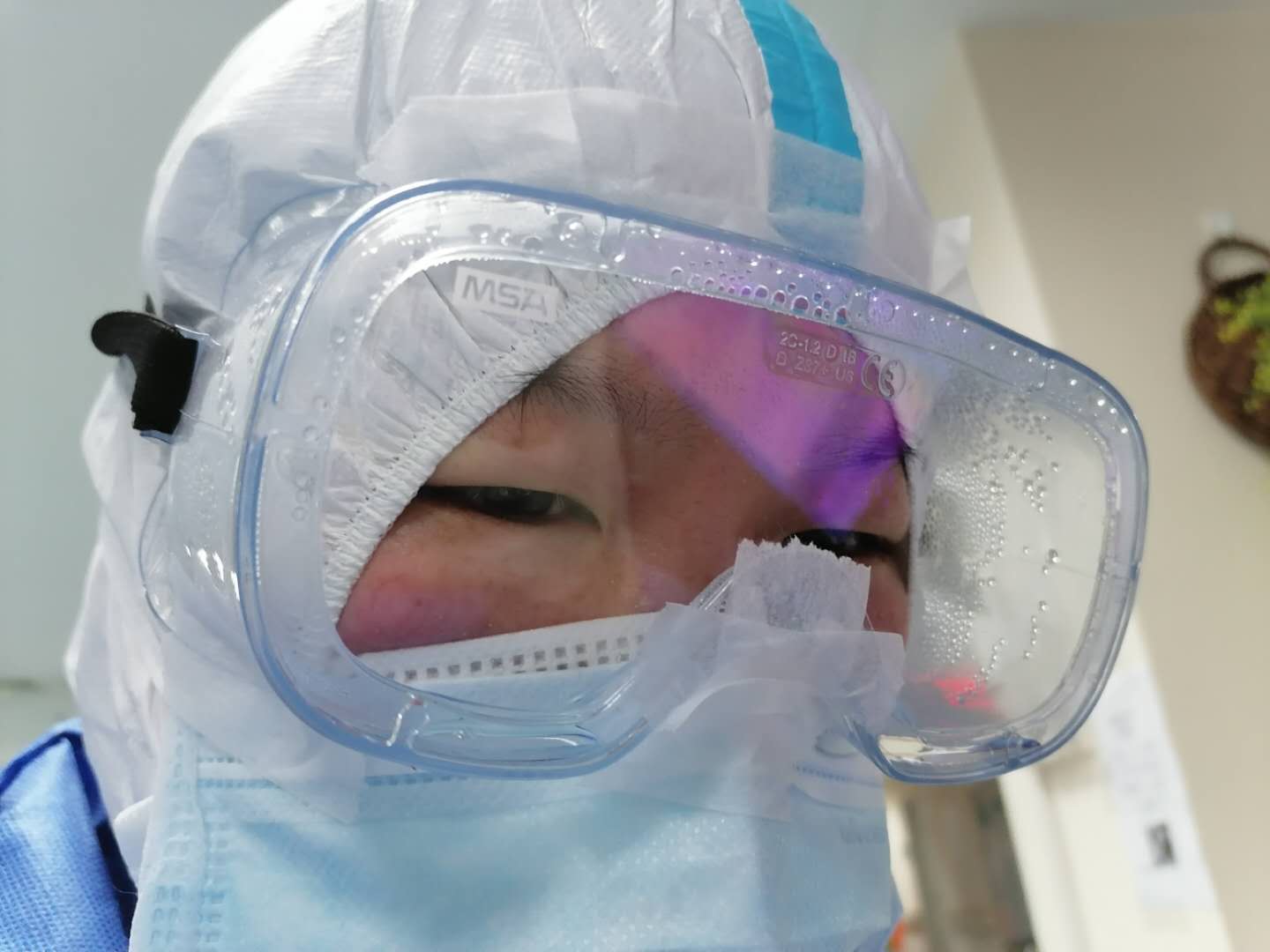
Zhang Jinling, a midwife of Sichuan University West China Second Hospital, volunteered to go to Wuhan city, the epicenter of the COVID-19 outbreak. She was responsible for providing care and support to critically ill COVID-19 patients and ensuring necessary preventive and protective measures were taken to minimize occupational safety and health risks. The photo shows Zhang’s bruised face after long shifts wearing tightly-fitted protective gear.
“Even the heavy gear makes us sweat, the foggy goggles make us operate with difficulty, but we do not compromise and treat it seriously.”
++++++++++
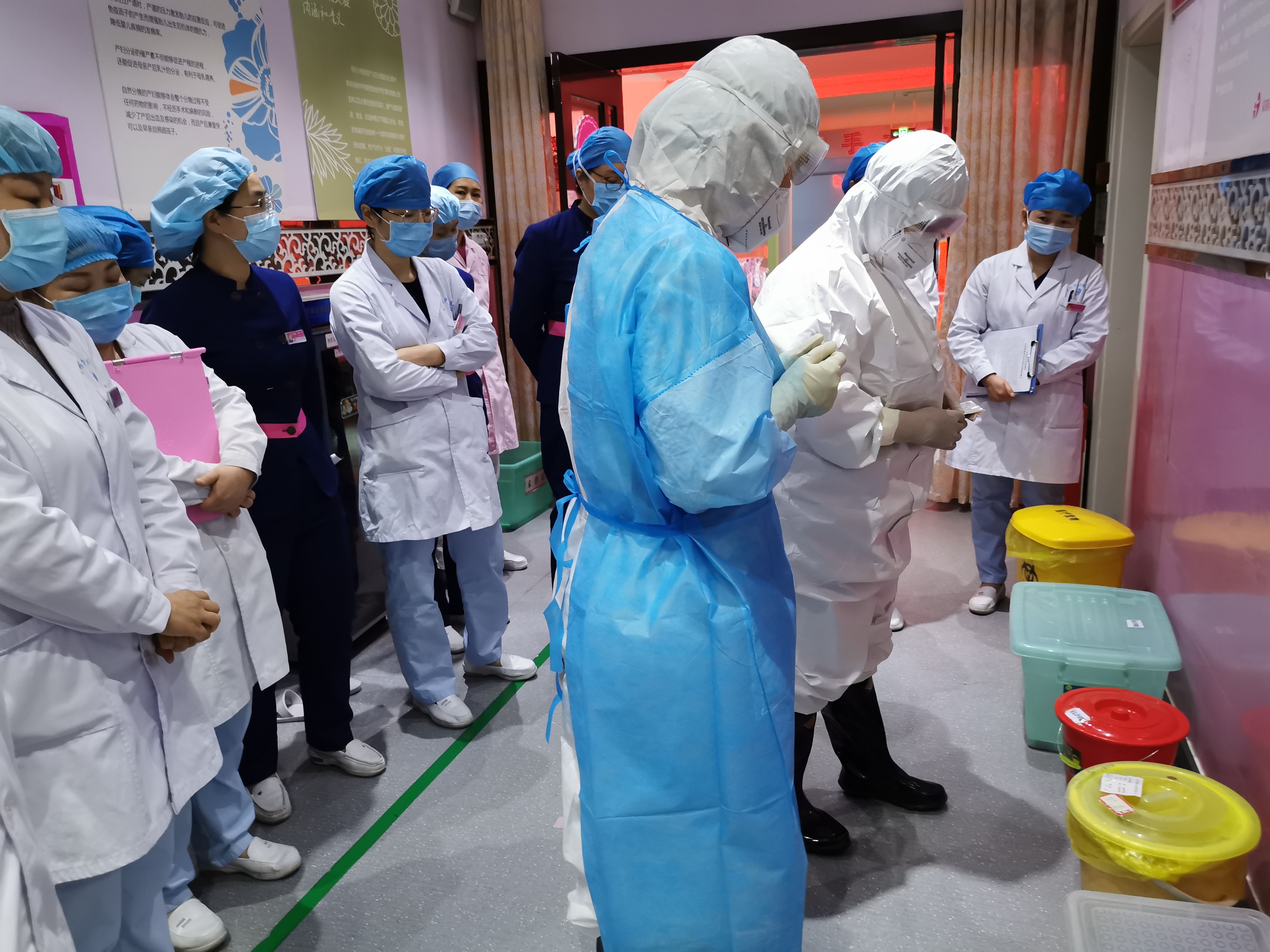
Chen Chongjun (front row in white gear), a midwife of Xingyang Maternal and Child Health Hospital of Henan Province with 30 years of work experience, cancelled her annual leave plan during the Chinese New Year, led her team in urgently acquiring knowledge of COVID-19 prevention and control, and organized emergency response drills on treating COVID-19 patients in labour.
“During an epidemic, almost everyone can stay at home except health care workers. To ensure safe motherhood and occupational safety, we must take both disease prevention and safe delivery seriously.”
++++++++++
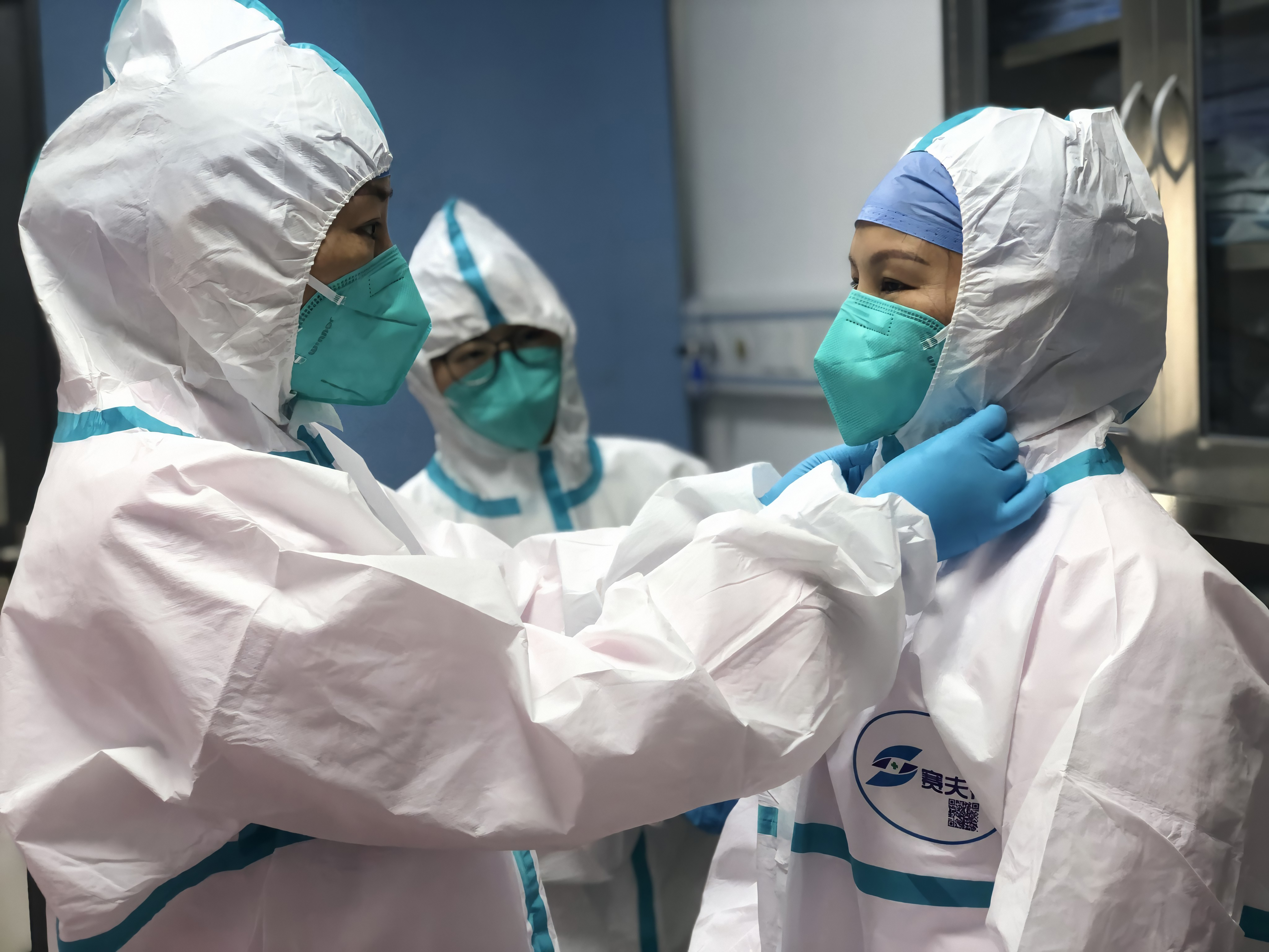
Since the Shenzhen Third People’s Hospital in southern Guangdong Province started to receive COVID-19 patients from Chinese New Year’s Eve in January, till 18 March, Ning Yifang, its head nurse and midwife and her nurse colleagues had worked on the frontlines for 58 straight days. To ensure midwives’ health and safety, Ning checked carefully to ensure the midwives were wearing their protective equipment properly.
“The pandemic does not care for people but we care for people. Taking strict personal protective measures, we are accountable for the safety of every one of our colleagues, ourselves and our patients.”
++++++++++
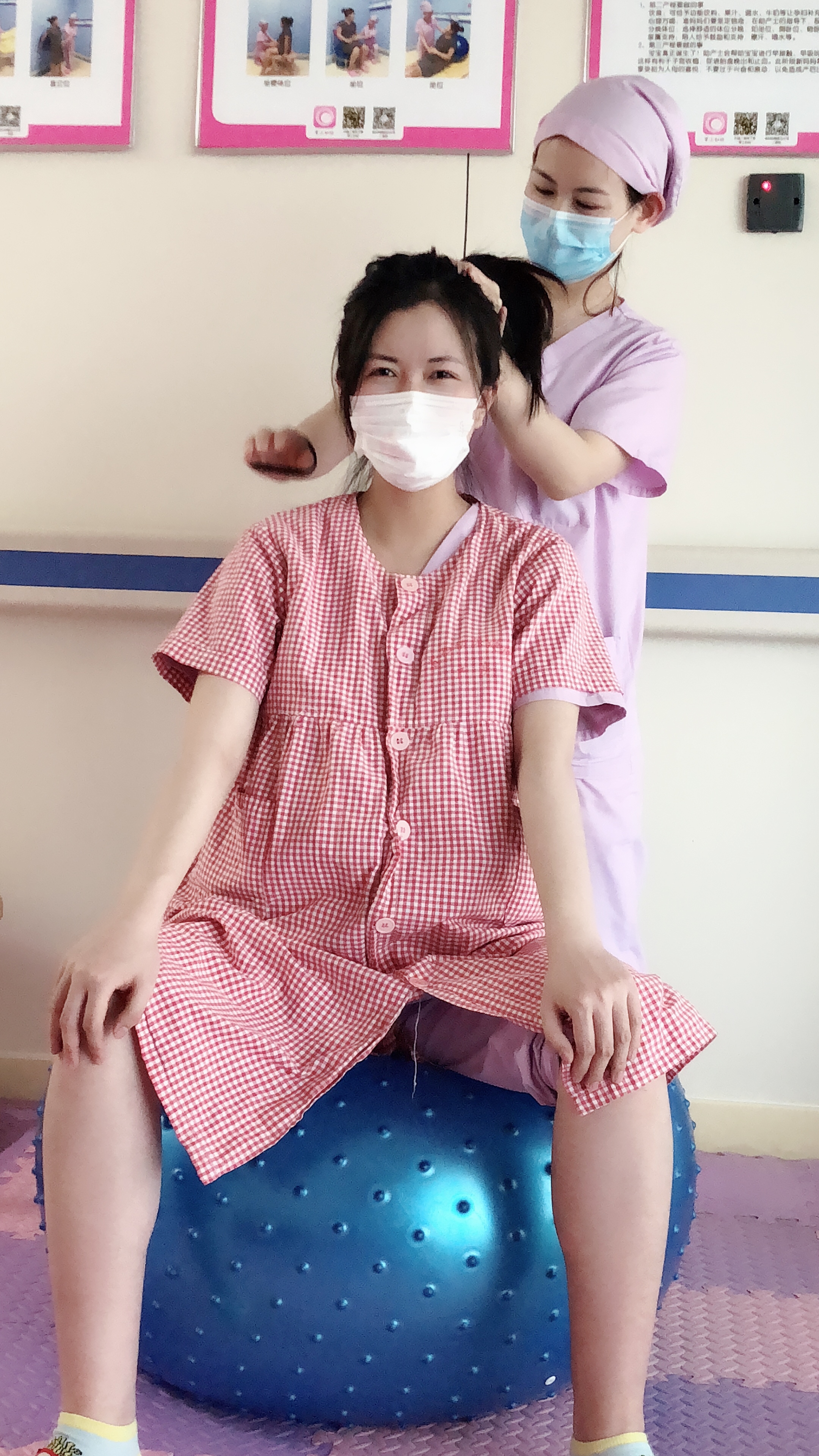
As a midwife working in Hunan Provincial Maternal and Child Health Hospital for the past three years, Huang Ke knows well the hardship before giving birth. She is helping a pregnant woman comb her hair to make her look good at the moment she “meets” her child.
“I think pregnancy is a natural process. My role as a midwife is to keep company with the soon-to-be mother, make her feel safe, relieve her pain and reduce her fear, and help her see childbirth as a beautiful journey.”
++++++++++
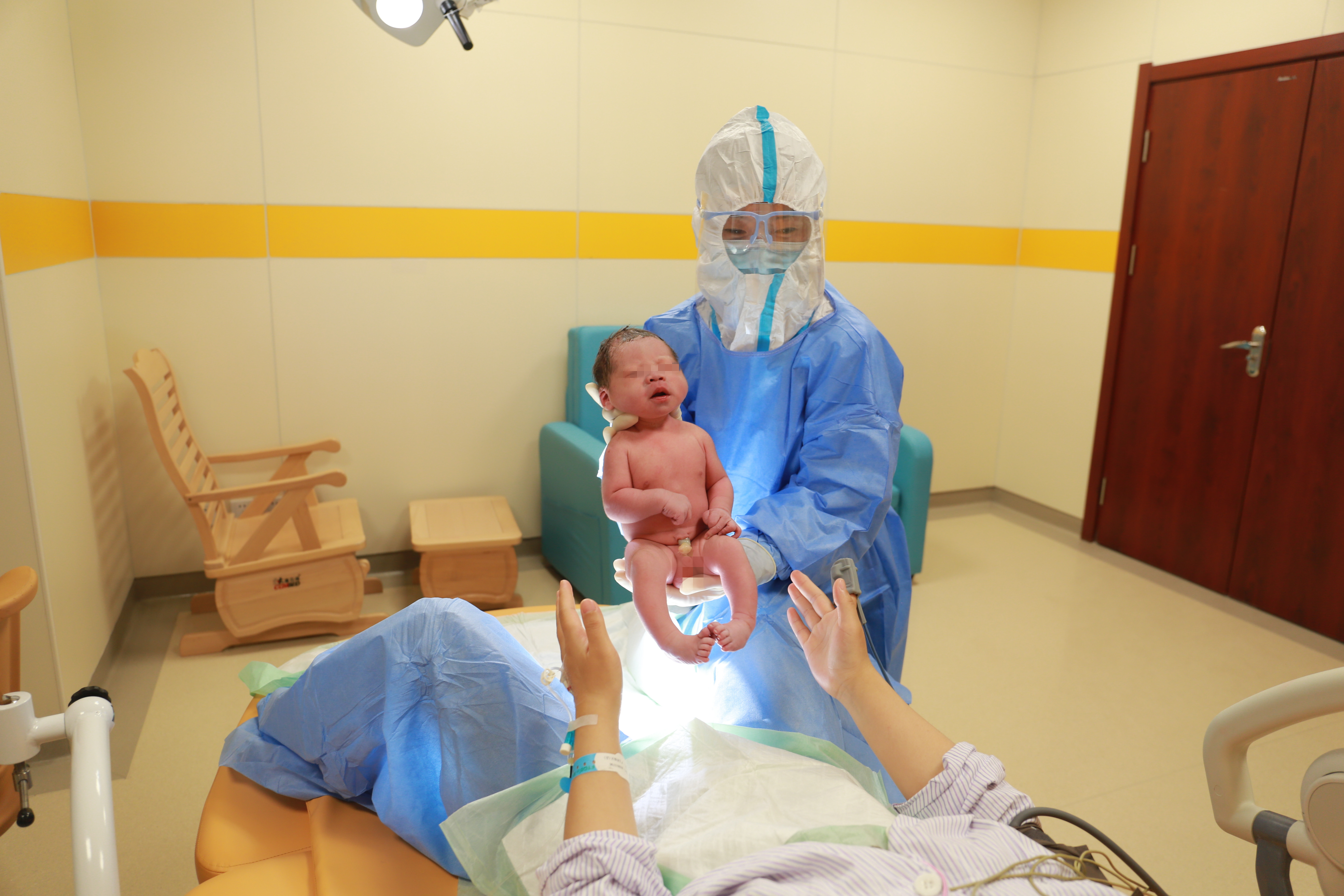
Wang Xueli is a midwife at the Shijiazhuang Fourth Hospital of Hebei Province. She is responsible for attending births from high-risk pregnancies during the COVID-19 pandemic. She is showing a newborn to its mother following the delivery.
“During this special period of time, every health care worker is taking strict high-level protective measures. When attending births for women with suspected infection and under quarantine, we also worry but we do not fear. We have the professional skills and enthusiasm for our work. We can manage it.”
++++++++++
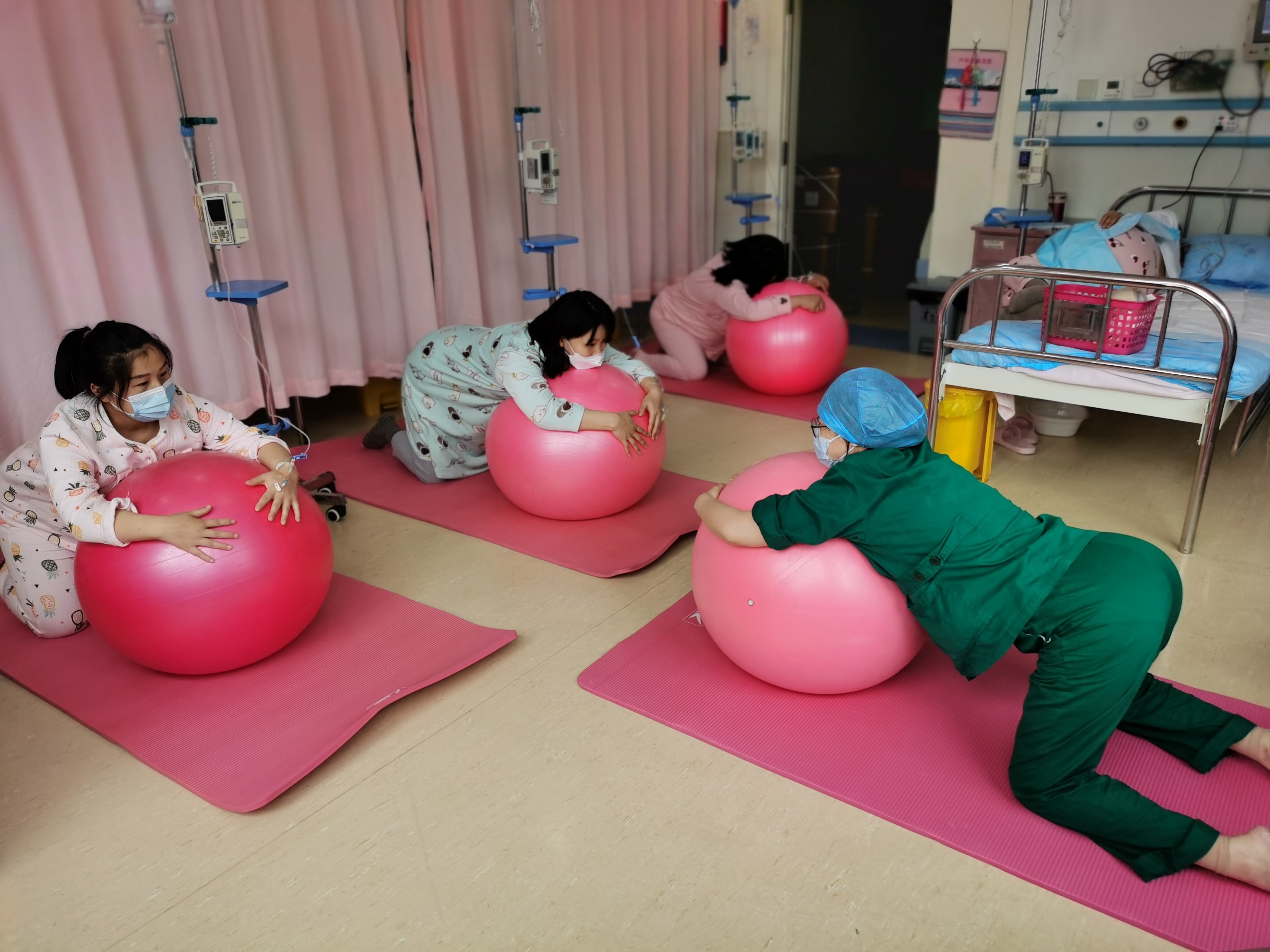
Li Hui, a midwife from Weifang Maternal and Child Health Hospital, teaches pregnant women using birthing balls to induce labour.
“Midwives care for mothers and bring new life into the world. At a time of COVID-19, I am happy to be the mother’s backbone.”
++++++++++
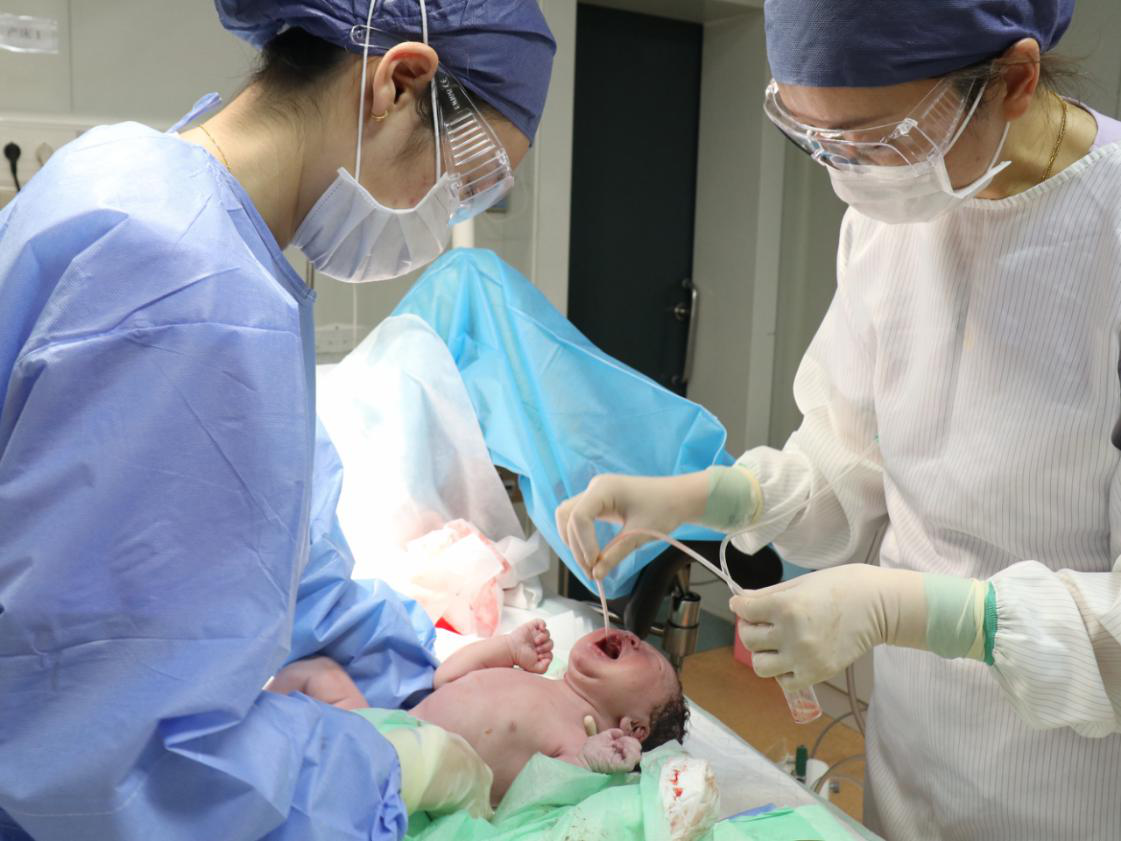
Cheng Yanling (in white), a midwife of Shanghai Baoshan Hospital of Traditional Chinese and Western Medicine, volunteered to go to the frontlines and attended births from high-risk pregnancies in isolation wards. She and a colleague are providing care to an infant born to a mother who endured a high-risk pregnancy.
“When a baby is in the womb, it is its mother who cares for it; when a baby is born, it is us who welcome it and care for it and its mother. I hope every baby can live a happy life and embrace every journey in its life.”
++++++++++

Wu Xianjun, a midwife of the Zhongshan University Affiliated Third Hospital, Guangdong Province, cheered her colleagues and patients up through drawing pictures, while she attended to births in isolation wards.
“I am honoured to work in the isolation wards in this designated hospital for COVID-19 patients. I draw pictures to help reduce the pressure of medical workers and give hope to the patients during the pandemic.”
++++++++++
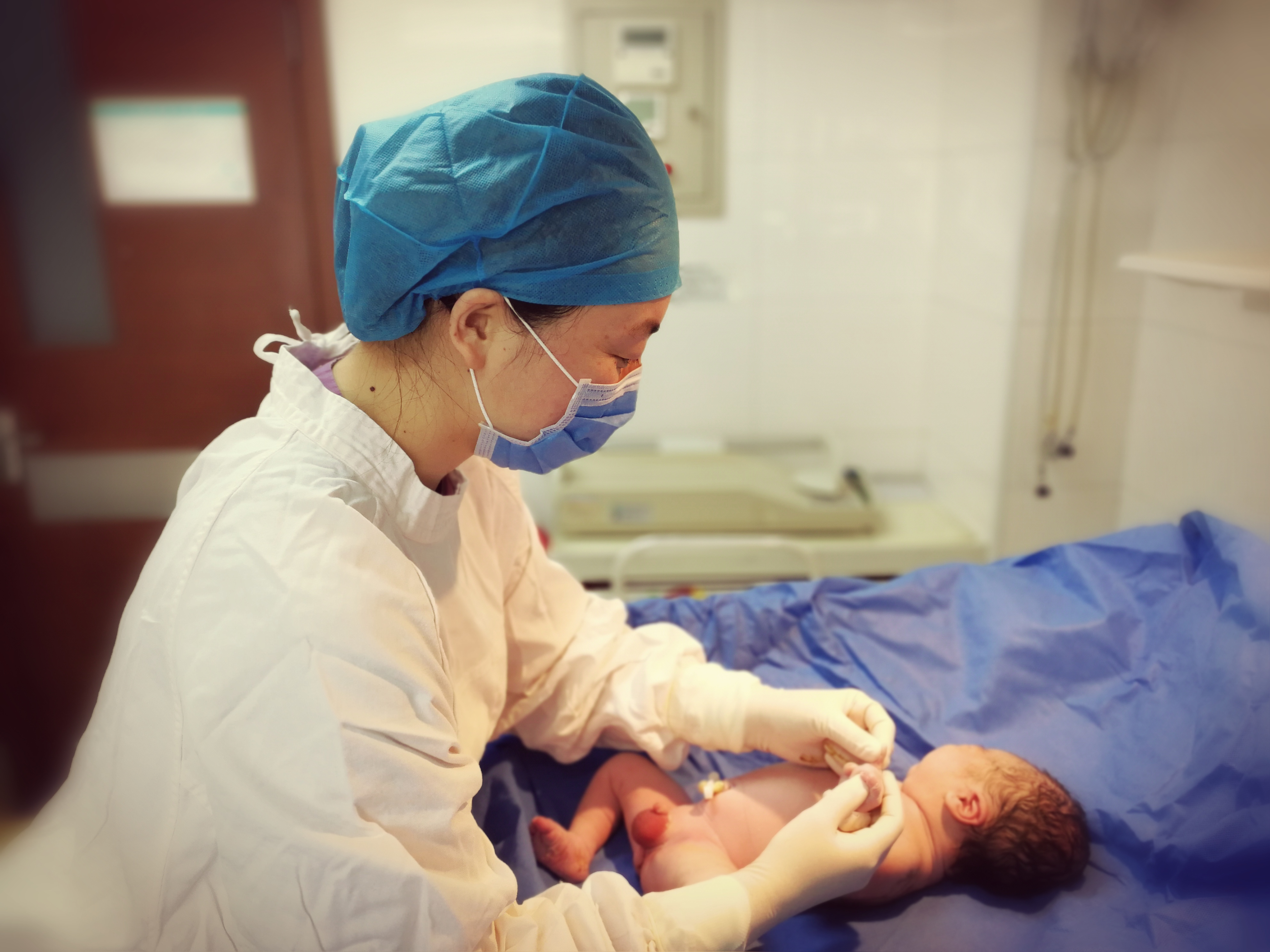
Zhang Li, a midwife of the Capital Medical University Affiliated Beijing Youan Hospital, welcomes a newborn during the COVID-19 pandemic.
“A midwife’s hand may not be big, but she can hold a newborn. A midwife’s body may not look strong, but she can offer warmth and give courage and hope to the new mother, and bring a new life into the world.”
++++++++++
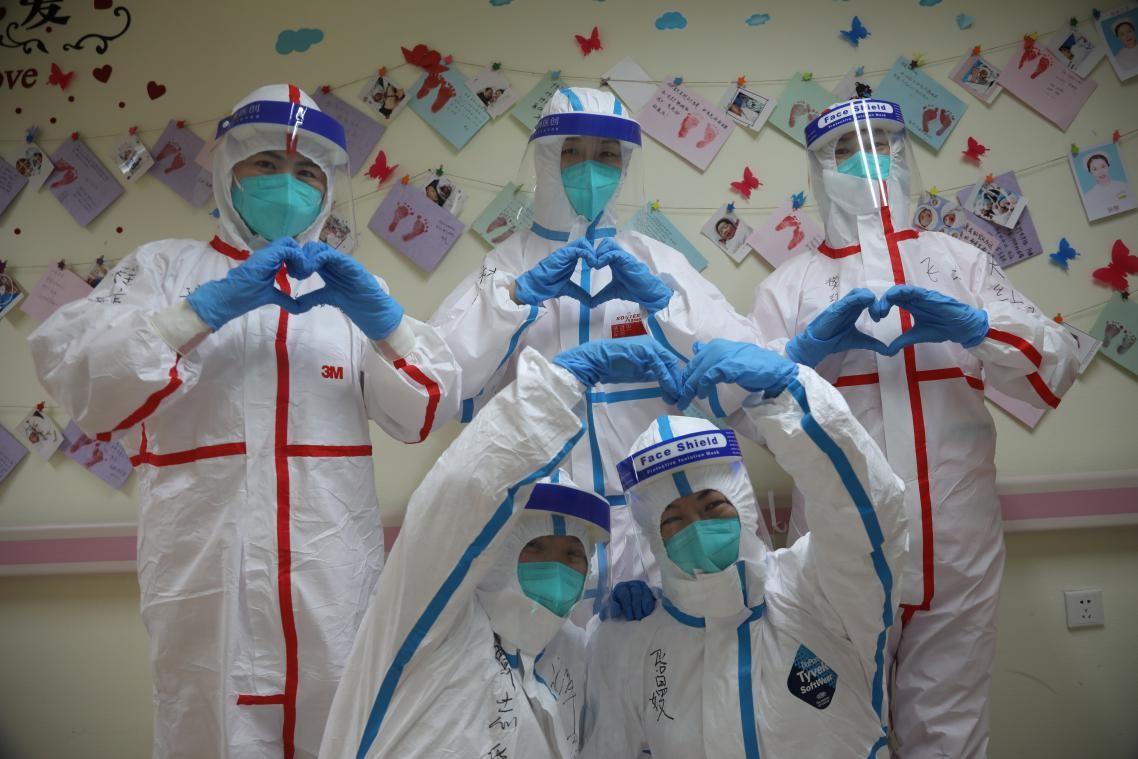
A group photo of five midwives working in the Hubei Provincial Maternal and Child Health Hospital during the COVID-19 pandemic. More than 5,000 infants were born safely in the hospital during the pandemic from January to early April 2020.
UNFPA, the UN's sexual and reproductive heath agency, works in China and over 150 other countries globally to achieve zero maternal deaths, zero unmet need for family planning, and zero gender-based violence and other harmful practices against women and girls - a vision enshrined in the Programme of Action stemming from the landmark 1994 International Conference on Population and Development (ICPD).
To learn more about our response to COVID-19, visit www.unfpa.org/covid19
To support our lifesaving work amid the pandemic, visit https://donate.unfpa.org/th-en/covid-19


